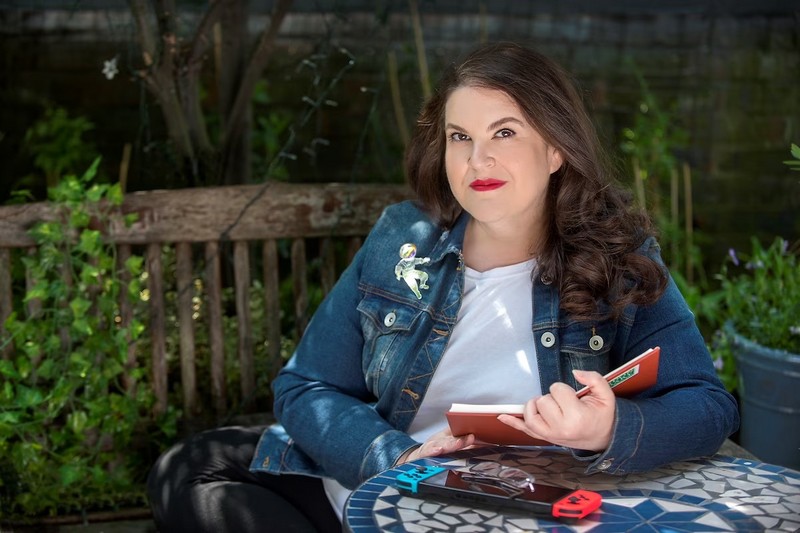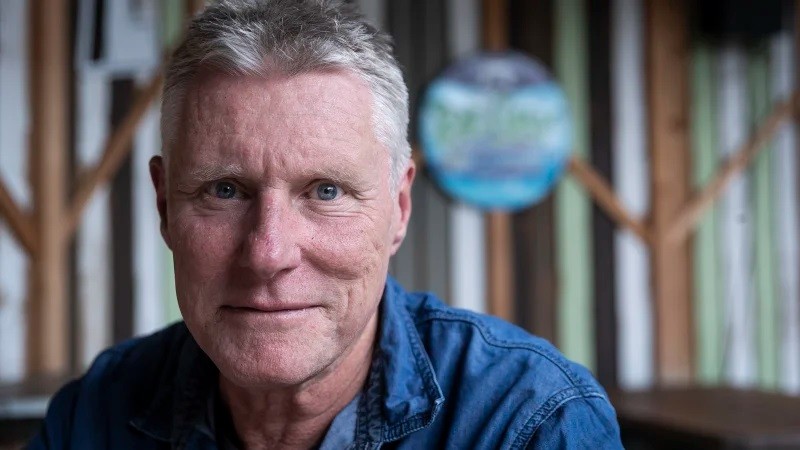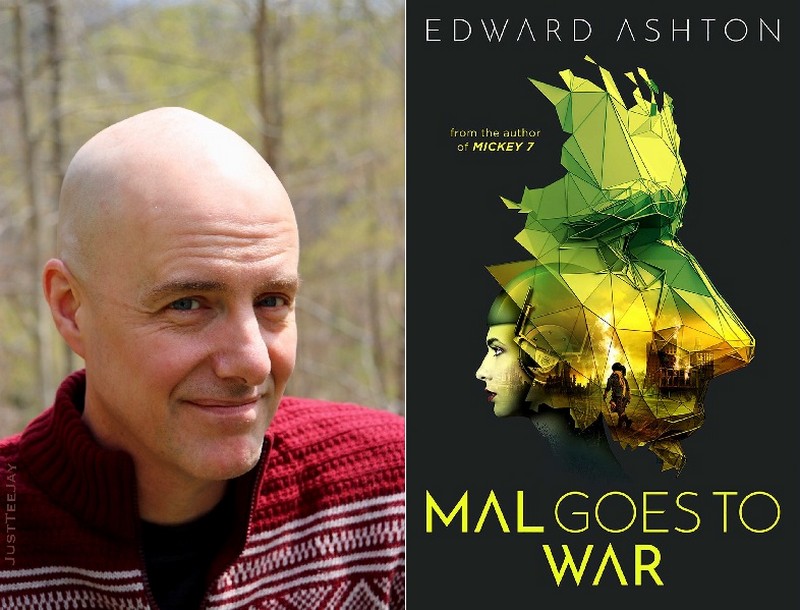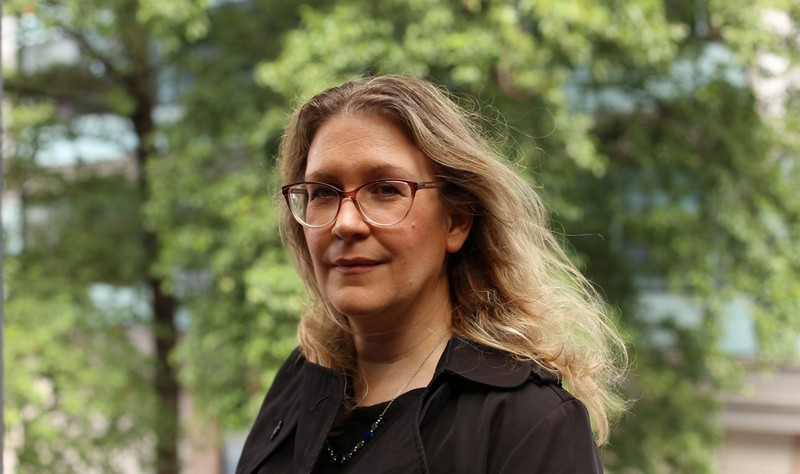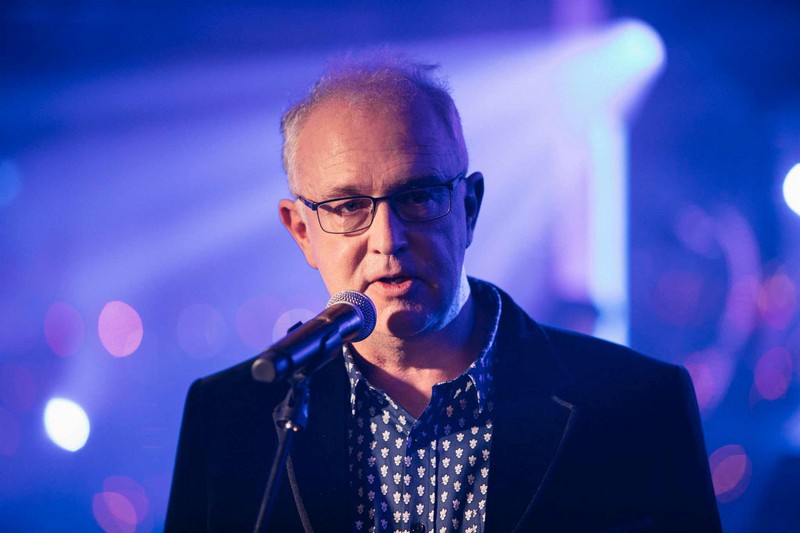 English novelist Naomi Alderman gained plenty of attention for her last novel The Power, a speculative look at what might happen in a shift of global power. She has followed that book up with something a little closer to reality, but still on the speculative side. The Future takes as its premise three of the wealthiest people in the world and their plans for escaping what they see as an inevitable apocalypse. Readers soon find though that there is a lot more going on than appears on the surface.
English novelist Naomi Alderman gained plenty of attention for her last novel The Power, a speculative look at what might happen in a shift of global power. She has followed that book up with something a little closer to reality, but still on the speculative side. The Future takes as its premise three of the wealthiest people in the world and their plans for escaping what they see as an inevitable apocalypse. Readers soon find though that there is a lot more going on than appears on the surface.
The Future opens with the bizarrely named Lenk Sketlish, head of a Facebook/Twitter style social media platform called Fantail, Zimri Nommik, head of an Amazon-style goods delivery service called Anvil and Ellen Bywater, head of an Apple/Microsoft/Google/IBM style tech company called Medlar. The three are together when they get an alert that the apocalypse is imminent. They immediately put in place plans to escape with their nearest and dearest to pre-built luxury bunkers to wait out the end of the world. Alderman then drops readers back in time, she will come back to this moment and its aftermath, but before that she introduces survivalist social media star Lai Zhen, who starts a relationship with Lenk’s right hand Martha Enkorn. Enkorn has her own plans and it turns out is working with Zimri’s wife, Ellen’s son and the former head of Medlar to try and stave off the very apocalypse that their bosses and partners are anticipating.
Alderman is very much in Neale Stevenson territory in The Future with its day-after-tomorrow technology, activist hackers and social conscience. And while there is enough plot to keep readers hooked, there is also plenty of speechifying, exposition and explanation. That said, this book has probably the most approachable and engaging explanation of AI, its benefits and its limitations, around. This aspect of the book is not only fascinating but also gives readers a better insight into some of the plot mechanics. Enkorn is the survivor of a religious cult so there is also a bit of religion to go round – both from her but also from the cult leader who also happened to be her father.
In structure The Future ends up being a kind of heist novel, full of twists and turns, and with the set-up generally explained after the fact. Like any good heist novel some parts of the plan don’t work out as planned, go wrong and have to be retooled on the fly. There is plenty of sleight of hand and misdirection to make all this work. But as already noted, it is this aspect – the secrets and revelations – that prevents The Future from becoming a series of lengthy (although interesting) lectures.
The most important aspect of The Future though is that its real focus is on people trying to make positive change. People who believe that the technology that now rules our lives can actually be turned to good. People who say: sure there may be an apocalypse on the horizon but also, maybe there isn’t, or maybe we can avert it or moderate its impacts. It is an idea starting to creep into science fiction through the solarpunk genre but one that has not yet had wide play. And for that reason alone, The Future is worth picking up.
Robert Goodman
For more of Robert’s reviews, visit his blog Pile By the Bed
Other reviews you might enjoy:
- The Housekeepers (Alex Hay) – book review
- A Stranger in the Citadel (Tobias S Buckell) – book review
- What Happened to Nina? (Dervla McTiernan) – book review

Robert Goodman is a book reviewer, former Ned Kelly Awards judge and institutionalised public servant based in Sydney. This and over 450 more book reviews can be found on his website Pile By the Bed.

